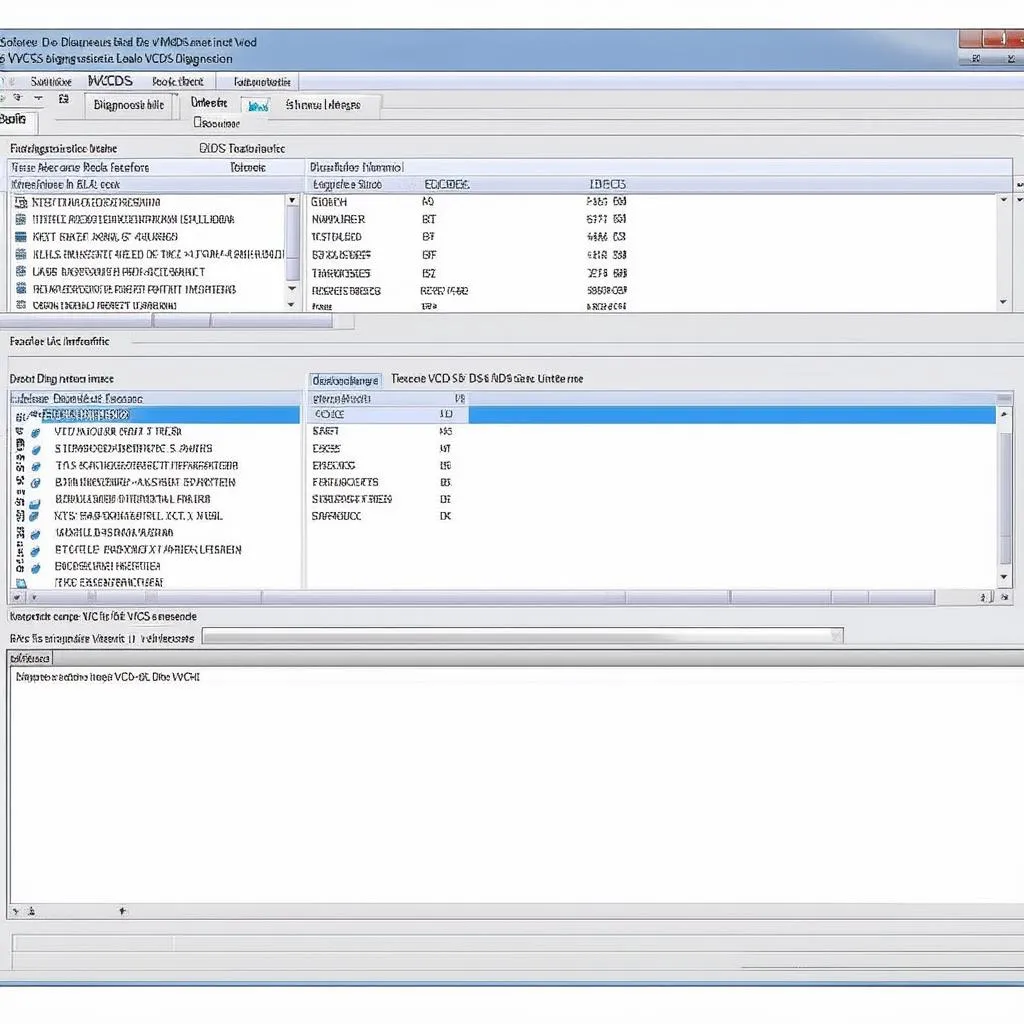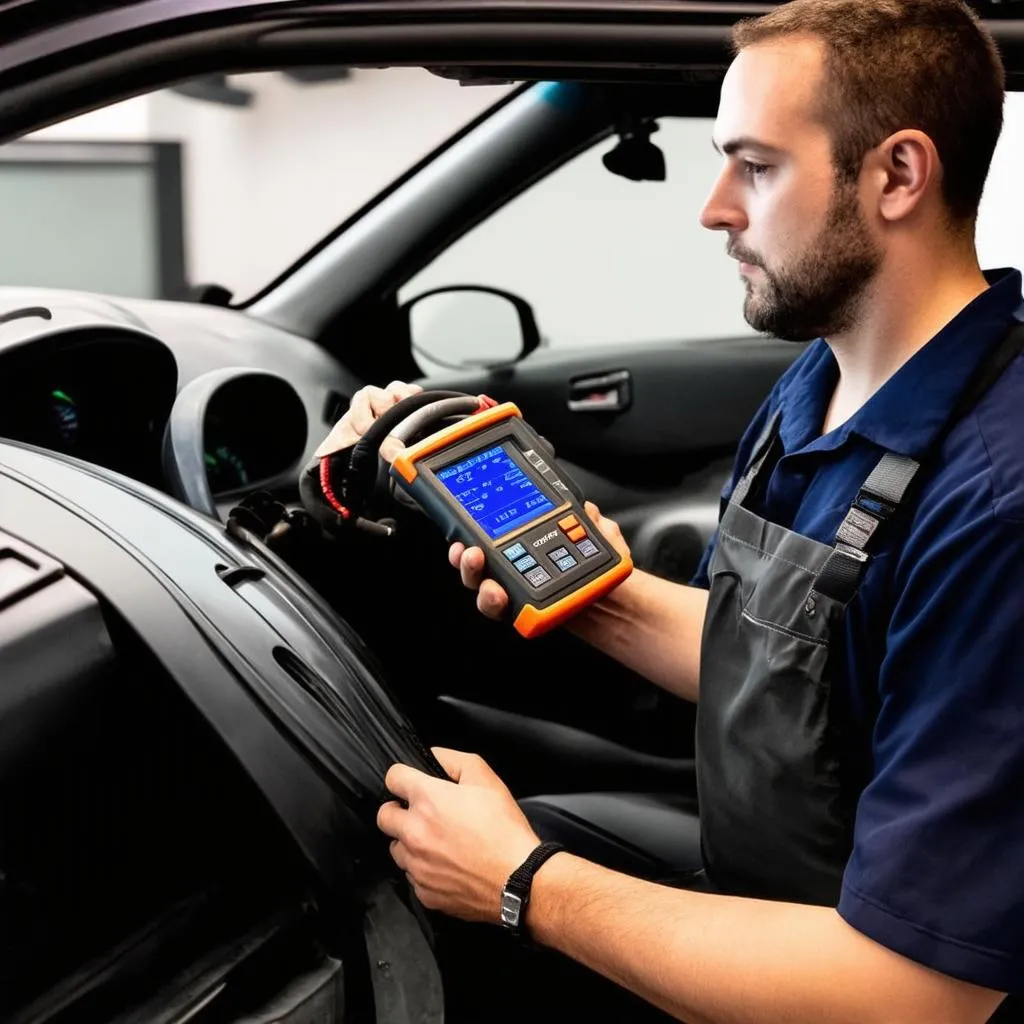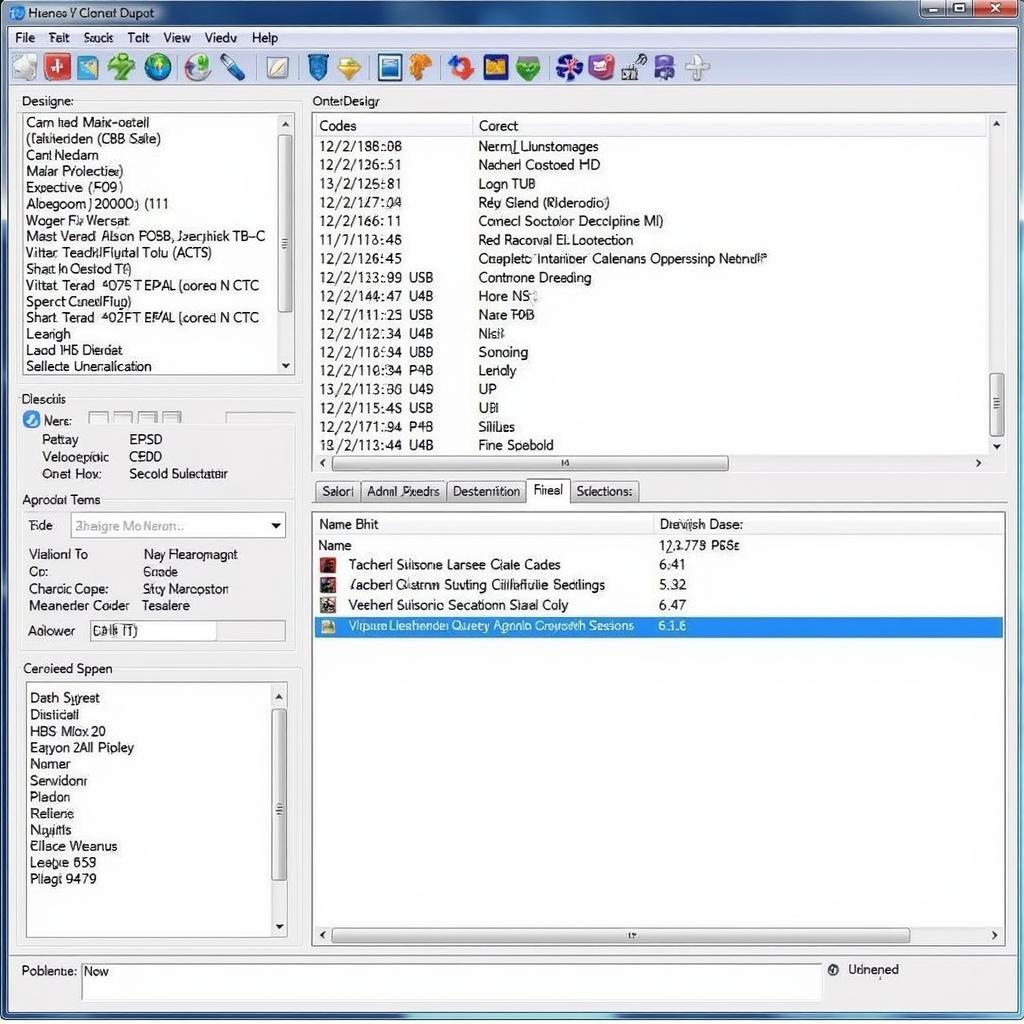Looking for information on VCDS mileage correction? You’re in the right place. Whether you’re a seasoned mechanic or a car enthusiast, understanding the capabilities and limitations of VCDS when it comes to mileage adjustments is crucial. This article delves into the intricacies of VCDS mileage correction, exploring its potential uses, ethical considerations, and essential precautions.
Understanding VCDS and Its Capabilities
VCDS, short for VAG-COM Diagnostic System, is a powerful software tool designed for diagnosing and troubleshooting Volkswagen Audi Group (VAG) vehicles. It allows users to access and modify various control modules within the vehicle’s electronic system.
While VCDS offers a wide range of diagnostic and customization options, it’s important to note that mileage correction is a complex and ethically sensitive issue.
Expert Insight: “VCDS is an incredibly versatile tool, but it’s crucial to use it responsibly. Tampering with mileage readings can have serious legal and ethical implications,” says automotive electronics expert, Dr. Emily Carter, author of “Modern Automotive Electronics and Diagnostics.”
Can VCDS Correct Mileage?
The short answer is: it depends.
VCDS’s ability to adjust mileage varies depending on the vehicle’s year, make, model, and the specific instrument cluster installed.
- Older Vehicles: Some older VAG vehicles (typically pre-2005) stored mileage data in the instrument cluster itself. In certain cases, VCDS might be able to modify this data.
- Modern Vehicles: Most modern vehicles store mileage data in multiple electronic control units (ECUs), making it significantly more challenging to alter. Attempting to do so with VCDS on these vehicles is unlikely to succeed and could even trigger fault codes or damage the vehicle’s electronics.
The Ethical and Legal Implications of Mileage Correction
It’s paramount to understand the legal and ethical ramifications associated with mileage correction:
- Legality: In many jurisdictions, altering a vehicle’s mileage with the intent to misrepresent its history is illegal and can result in severe penalties.
- Ethical Considerations: Tampering with mileage undermines trust between buyers and sellers and can lead to unsafe vehicles being sold under false pretenses.
Expert Opinion: “Mileage manipulation not only constitutes fraud but also poses a safety risk, as buyers base maintenance decisions on inaccurate mileage readings,” warns automotive safety advocate, Michael Johnson, in his book “Vehicle History and Buyer Safety.”
When Mileage Correction Might Be Necessary
There are limited instances where adjusting a vehicle’s mileage might be justifiable, but it’s crucial to ensure these adjustments are performed legally and ethically:
- Instrument Cluster Replacement: If a faulty instrument cluster is replaced with a new or used unit, mileage correction might be necessary to synchronize the replacement cluster with the vehicle’s actual mileage.
- ECU Replacement or Repair: In cases where an ECU controlling mileage data is replaced or repaired, mileage adjustment may be required to reflect the vehicle’s true mileage.
Important Note: In any situation where mileage correction is deemed necessary, it is crucial to document the procedure thoroughly and inform potential buyers of the adjustment and the reasons behind it.
 VCDS Software Interface
VCDS Software Interface
FAQs About VCDS Mileage Correction
Can I use VCDS to adjust the mileage on my car?
As mentioned earlier, the possibility of using VCDS for mileage correction depends heavily on the vehicle’s make, model, year, and the specific instrument cluster. It’s best to consult with a trusted mechanic or automotive electronics specialist to determine if your vehicle allows such adjustments.
Is it legal to correct the mileage on my own vehicle?
The legality of mileage correction varies depending on your location and the specific circumstances. It’s crucial to research and understand the laws in your jurisdiction. Generally, any mileage adjustment must accurately reflect the vehicle’s true mileage and be performed for legitimate reasons, such as instrument cluster replacement.
What are the risks of using VCDS for mileage correction?
Attempting mileage correction with VCDS on incompatible vehicles or without proper knowledge can lead to several risks:
- ECU Damage: Incorrect procedures can potentially damage sensitive electronic control units.
- Legal Consequences: Tampering with mileage for fraudulent purposes can lead to legal repercussions.
- Warranty Issues: Unauthorized modifications, including mileage adjustments, can void your vehicle’s warranty.
 Mechanic Using Diagnostic Tool
Mechanic Using Diagnostic Tool
Conclusion
While VCDS is a powerful tool for diagnosing and customizing VAG vehicles, its capabilities regarding mileage correction are limited and come with significant ethical and legal considerations. Always prioritize transparency and legality when dealing with vehicle mileage, and seek advice from trusted automotive professionals when needed.
For further assistance and expert advice on automotive diagnostics and repairs, reach out to CARDIAGTECH, your trusted source for high-quality diagnostic equipment and resources.


